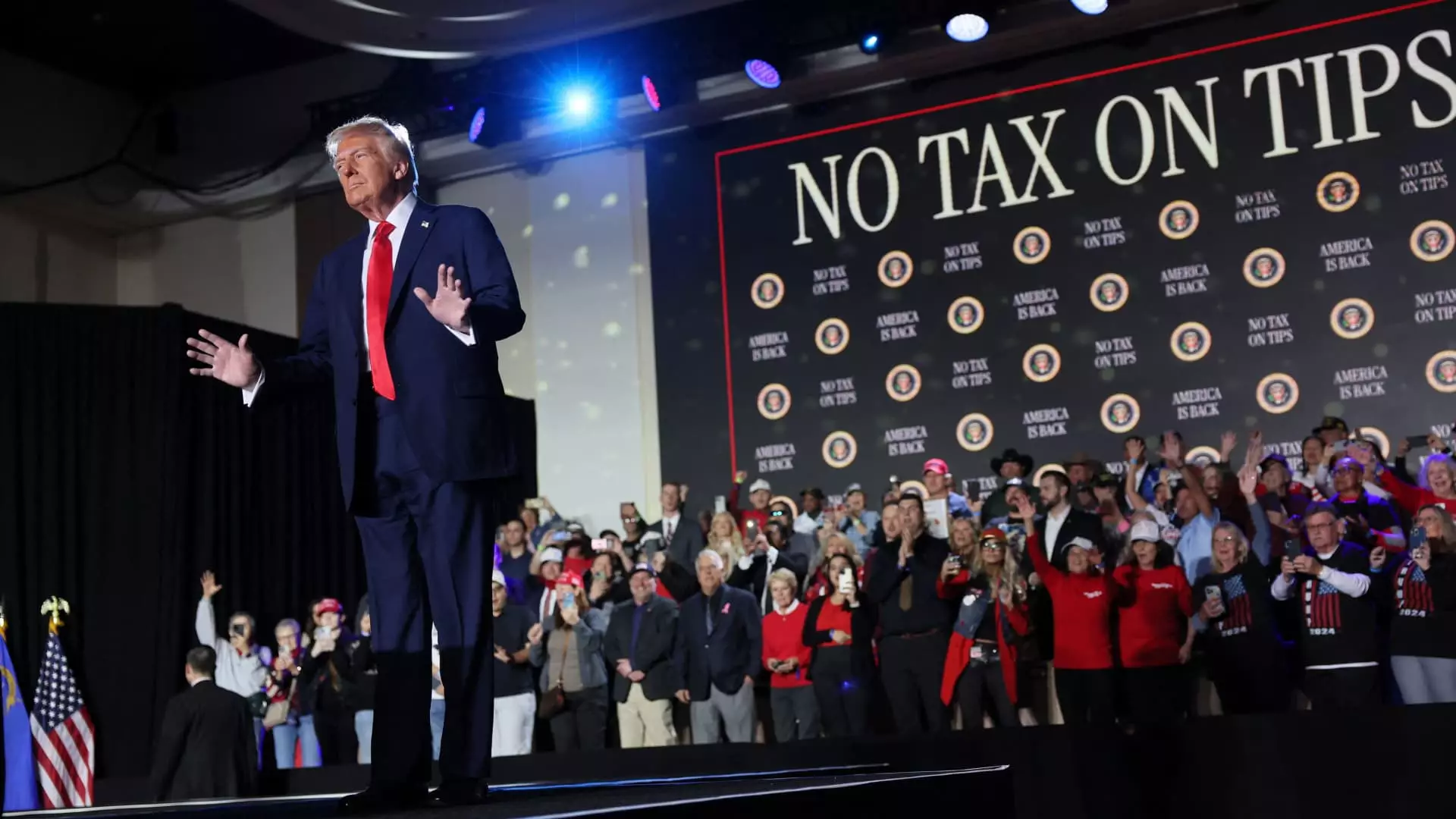In a moment that bewildered many observers, the Senate recently passed the No Tax on Tips Act with overwhelming support. This legislation promises a federal income tax deduction of up to $25,000 for tip-receiving workers, effectively following the breadcrumbs left by former President Donald Trump’s campaign proposals. While at first glance, this initiative seems like a godsend for the hardworking citizens scrambling to make ends meet, the deeper implications expose a series of inequities and missed opportunities that betray the spirit of genuine fiscal support.
Who Really Benefits?
The bill’s ambitious promise of tax relief is catered specifically to a class of workers who depend on cash tips—essentially those engaged in service industries like restaurants and hospitality. However, only those whose earnings hover around the $160,000 threshold would qualify for this deduction. It’s alarming to think that a significant number of those earning tips are part-time workers or those whose earnings fall considerably below that ceiling. As expert Alex Muresianu points out, this narrow sector makes up just about 2.5% of the overall workforce, raising the question: Are we really addressing an urgent need, or are we simply crafting a narrative that sounds favorable on the surface?
When dissecting the consequences of this legislation, it becomes evident that the majority of tipped employees, many of whom earn less than the standard deduction, will find little or no tangible advantage from this tax break. “For the lowest income tipped workers, it provides no marginal benefit,” Muresianu contends. The bill primarily relieves moderate and middle-income workers, creating the illusion of a comprehensive safety net while effectively excluding the very individuals it purports to assist.
The Flawed Logic of Tipping
Critics of the No Tax on Tips Act argue that it implicates a broader injustice in how we perceive income in America. Tipping, viewed through the lens of social interaction, should not be treated as a distinct form of income deserving of separate tax treatment. If we accept that a waitress earning a total of $35,000, inclusive of $10,000 in tips, is entitled to a substantial tax exemption compared to a cashier earning the same base salary but receiving no tips, then we are endorsing a discriminatory framework that defies logic and fairness.
Furthermore, the expansion of a “no tax on tips” policy may inadvertently corrupt the very fabric of compensation structures. It risks prompting a new wave of misclassification, where base salaries are intentionally set lower to lean more heavily on tipping, thereby exploiting this tax loophole. The same social behaviors that shape tipping habits add a layer of unpredictability to how this policy might unfold in real-world scenarios.
The Bipartisan Facade
The No Tax on Tips Act has been framed as a bipartisan effort, with esteemed Senators like Cruz, Rosen, and Cortez Masto vocalizing their support in a show of unity. However, one must question whether such coalition-building serves a genuine public good or if it merely crafts a palatable veneer for a deeply flawed proposal. Are lawmakers truly interested in lifting up the lowest earners in the tipping economy, or are they capitalizing on a trending issue to bolster their political platforms ahead of upcoming elections?
This bipartisan enthusiasm leads to an astonishing reality: despite the superficial optimism surrounding this legislation, its potential to foster genuine economic relief appears flawed. The bill’s promises reflect a failure to address core issues in income disparity and a missed opportunity to offer holistic financial aid and support for the truly vulnerable members of our workforce.
Empathy cannot be paraded as a political strategy, and the narrative around the No Tax on Tips Act may serve only to underline the widening chasm in economic opportunities available to different segments of American workers. In this context, we are left with an uncertain economic landscape that prioritizes narratives and optics over equitable and sensible policy.

Leave a Reply